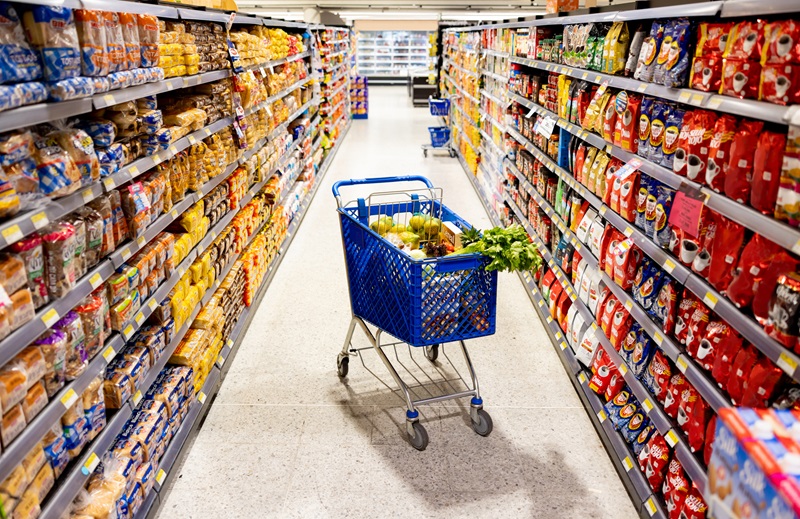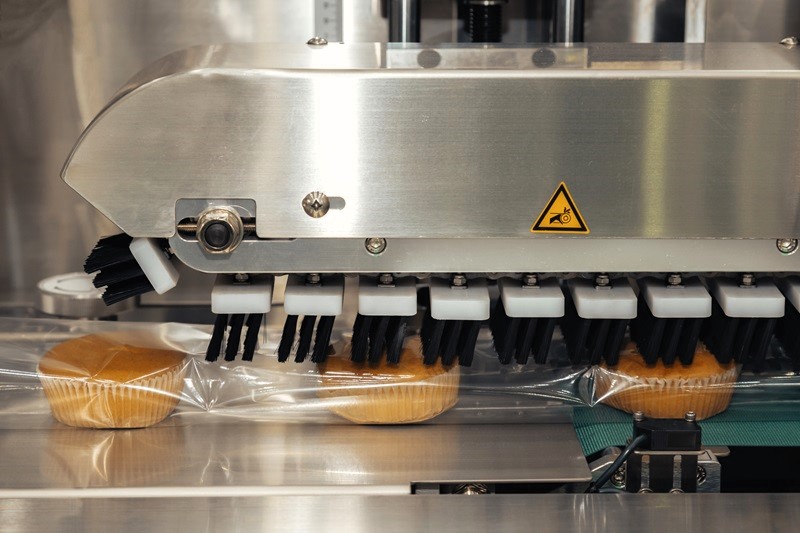Ultra-processed foods are the latest villains in food and nutrition. Health enthusiasts warn that these foods may cause weight gain, heart disease and a host of other maladies.
However, it may surprise you to learn how little we know about how these foods affect our health. Let’s review what they are, what we know, and what you can do to maximize the health of your diet plan.
Food Processing 101

Before discussing ultra-processed foods, let’s get a clear understanding of regular food processing. It’s a common misconception that all processed foods are unhealthy. The truth is that food processing ensures a safe, nutritious and abundant food supply. Here are a few examples:
- Milk pasteurization is a food processing practice that keeps dairy foods safe. Exposing fresh milk to heat kills harmful bacteria responsible for diseases like listeriosis, tuberculosis and typhoid fever.
- Food fortification (the addition of nutrients to common foods) is a food processing method that helps reduce nutrient deficiencies in the population. It started with adding iodine to table salt in 1924 to reduce the risk of goiter, and now includes things like vitamin D fortification of dairy foods and the addition of B vitamins to many grain foods.
- Packaging and preservation are food processing methods that help retain the nutrient quality of important foods. For example, frozen fruits and veggies have been shown to have higher nutrient content than their fresh counterparts due to nutrient losses that occur in fresh produce during transport and storage.
Still, there are plenty of food items processed to be cheap and delicious that have nothing to do with improving health. This is where the conversation about ultra-processed begins.
What are Ultra-Processed Foods?

Ultra-processed foods are typically defined as products that undergo multiple processing steps, resulting in items loaded with additives and lacking nutritional value. These foods are usually high in sugar, fat and sodium, and low in fiber, making them classic examples of junk food like soft drinks, chips, hot dogs and cookies.
However, health researchers have expanded this definition using a classification system called NOVA. NOVA evaluates a food’s ingredients to gauge the extent and intent of processing. According to NOVA, certain breakfast cereals, granola bars, baby formula, frozen meals and sliced bread are considered ultra-processed—foods that many rely on for a balanced diet.
This highlights a key criticism of the NOVA framework. It solely focuses on food processing, ignoring a food’s nutrient value. This simplistic approach falsely suggests that all processed foods lack nutrients, which is inaccurate. Thus, nutrient-rich protein shakes might be bucketed alongside items like jelly donuts despite their vastly different nutritional profiles and effects on health.
The takeaway: there’s no consensus on the definition and relevance of ultra-processed foods. Until further research considers things like nutrient content, we should not use “ultra-processed” terminology to label foods as inherently unhealthy.
That said, many experts recognize that food processing affects our health to some extent, and ongoing research is deepening our understanding of this relationship.
Ultra-Processed Foods and Health

Using the NOVA framework, it’s estimated that ultra-processed foods account for around 57% of the total calories in the average US adult’s diet.
Multiple studies have noticed that people who eat a lot of ultra-processed foods also have higher risks of developing diseases like obesity, heart disease, irritable bowel syndrome, depression, dementia and cancer.
Keep in mind that these studies don’t establish a direct cause-and-effect relationship between processed food intake and health. They just show that they are occurring at the same time. Nonetheless, there are a few theories about how they might be related, including the following:
- Ultra-processed foods with lots of saturated fats, added sugars and flavor-enhancing chemicals may replace more nutrient-dense foods, leading to poor nutrition intake.
- Food packaging materials may contain chemicals that disrupt hormone regulation.
- Certain foods’ exposure to food processing methods (e.g., fat to high heat) could create byproducts toxic to health.
While these theories are interesting, only one small experimental study has investigated these potential relationships.
In this study, 20 healthy volunteers spent a month in a nutrition lab. During this time, they were randomly given a diet of ultra-processed foods or a diet of minimally processed foods as defined by the NOVA framework. Diets were matched for calorie content, but participants were not instructed how much to eat.
As an example, the ultra-processed breakfast included a bagel with cream cheese and turkey bacon, while the minimally processed breakfast was oatmeal, fruit, nuts and skim milk.
After two weeks, participants switched diets. The final results indicated that when eating ultra-processed foods, participants ate more (about 500 more calories per day) and gained weight. This led researchers to conclude that something about processed foods causes increased calorie intake and weight gain.
However, it should be noted that while calories between the diets were the same, nutrition wasn’t. The ultra-processed diet group received less fiber and protein and more added sugars–nutrients associated with appetite control.
Ultimately, more research is needed before these insights become nutrition recommendations. So what do we do with this information now?
The Role of Processed Foods in a Healthy Diet

For many of us, cooking every meal from scratch isn’t realistic or affordable—and that’s okay. Until science provides a reason to think otherwise, moderation is the name of the game when it comes to processed foods.
Remember that not all processed foods are bad for you; in fact, some are essential for a nutritious diet. Here’s how to strike a balance between health, affordability and convenience:
- Include a variety of fruits and vegetables (fresh or frozen).
- Choose lower sodium products when possible.
- Look for products with minimal added sugars (aim for no more than 10% of calories – this would mean a women consuming 1,200 calories would want to limit to no more than 30 grams per day).
- Choose products with fiber and whole grains listed in the ingredients.
- Minimize foods with high fructose corn syrup, hydrogenated or interesterified oils, and flavor or color enhancers.
- Opt for lean proteins (chicken breast, fish, low-fat dairy) over higher-fat options like hot dogs, lunch meats and bacon.
Are Nutrisystem Foods Ultra-Processed?

Yes, according to some classifications. But as we’ve discussed, that may not mean anything related to health.
Nutrisystem programs are designed to meet current guidelines for healthy eating. Each program emphasizes consuming lean proteins and fiber-rich grains, fruits and vegetables throughout the day.
Nutrisystem foods contribute anywhere between 30% and 64% of daily calorie intake, depending on the chosen plan. Compared to store-bought products, they are formulated to be higher in protein and fiber, and lower in sodium, added sugars and saturated fats. Additionally, Nutrisystem foods exclude many food additives, such as MSG, high fructose corn syrup, artificial sugars and most preservatives.
Rather than contributing to a nutrient-poor diet, these plans help improve diet quality. A recent study used a tool called DietID to assess the nutrition intake of 50 overweight women between the ages of 45 and 65 before starting Nutrisystem and 12 weeks after following a Nutrisystem plan.
The findings revealed that after 12 weeks, women following Nutrisystem had improved the nutrient quality of their diet by 42% and achieved a diet quality score 27% higher than the average American.
Moreover, these programs are designed to assist individuals in achieving a healthy weight. While the impact of food processing on health is still being studied, it’s well-established that carrying excess weight leads to poor health outcomes over time.
Key Takeaways

- Processed foods are not inherently unhealthy; in fact, in some cases, they improve access to nutritious foods essential for a balanced diet. Moderation is key.
- The term “ultra-processed” lacks a precise definition, and further research is necessary to understand the true relationship between food processing and long-term health outcomes before making blanket judgments about foods.
- In the meantime, strive to achieve a healthy weight by adopting a dietary pattern rich in fruits, vegetables, whole grains and lean proteins while minimizing intake of added sugars, saturated fats and sodium.
- Nutrisystem plans align with these healthy eating recommendations and can aid in improving overall diet quality.
References
- Li L, Pegg RB, Eitenmiller RR, Chun JY, Kerrihard AL. Selected nutrient analyses of fresh, fresh-stored, and frozen fruits and vegetables. Journal of Food Composition and Analysis. 2017;59(59):8-17. doi:https://doi.org/10.1016/j.jfca.2017.02.002
- Monteiro CA, Cannon G, Moubarac JC, Levy RB, Louzada MLC, Jaime PC. The UN Decade of Nutrition, the NOVA food classification and the trouble with ultra-processing. Public Health Nutrition. 2018;21(1):5-17. doi:https://doi.org/10.1017/s1368980017000234
- Juul F, Parekh N, Martinez-Steele E, Monteiro CA, Chang VW. Ultra-processed food consumption among US adults from 2001 to 2018. The American Journal of Clinical Nutrition. 2021;115(1). doi:https://doi.org/10.1093/ajcn/nqab305
- Monteiro C, Cannon G, Lawrence M, Laura Da Costa Louzada M, Machado P. Ultra-Processed Foods, Diet Quality, and Health Using the NOVA Classification System Prepared By.; 2019. https://openknowledge.fao.org/server/api/core/bitstreams/5277b379-0acb-4d97-a6a3-602774104629/content
- Hall KD, Ayuketah A, Brychta R, et al. Ultra-Processed Diets Cause Excess Calorie Intake and Weight Gain: An Inpatient Randomized Controlled Trial of Ad Libitum Food Intake. Cell Metabolism. 2019;30(1). doi:https://doi.org/10.1016/j.cmet.2019.05.008
- CDC. How Overweight and Obesity Impacts Your Health. Centers for Disease Control and Prevention. Published January 4, 2024. https://www.cdc.gov/healthy-weight-growth/food-activity/overweight-obesity-impacts-health.html

